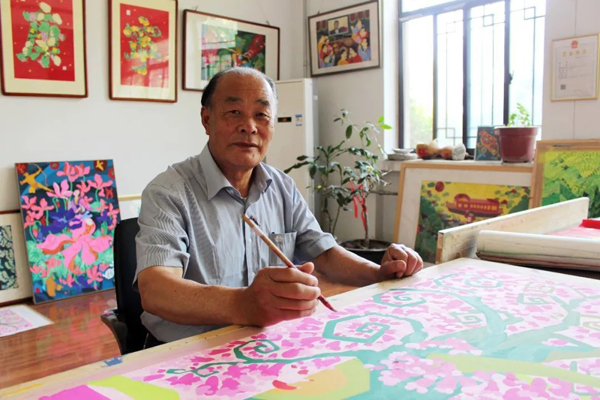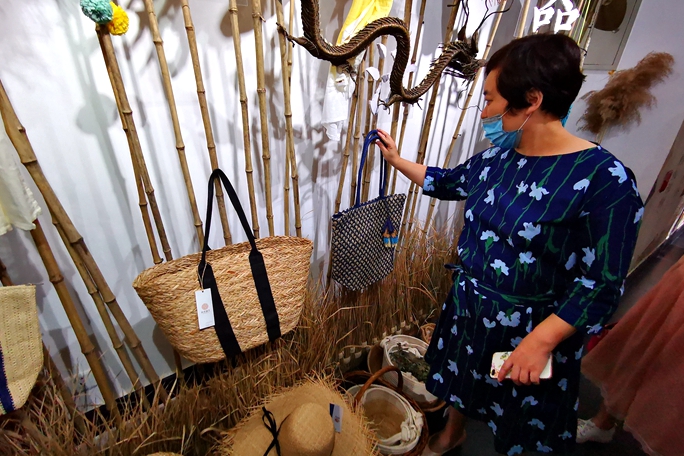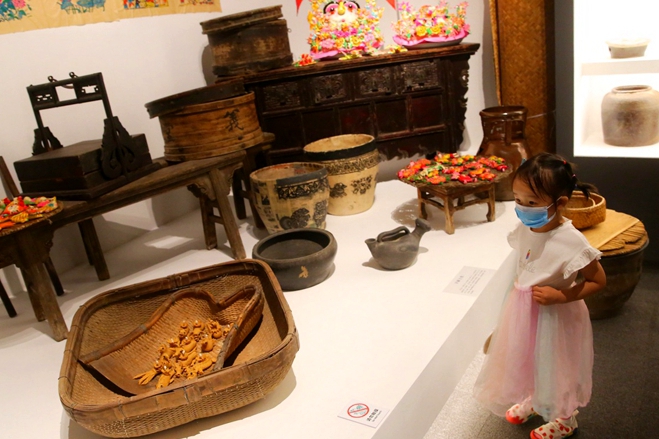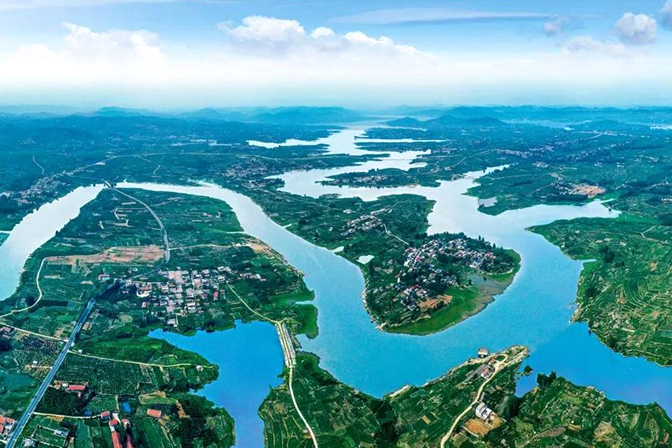Farmers paint picture of rural life in China
 |
|
Farmer-turned-painter Ma Jiqing has painted works portraying the development of the country's rural areas by depicting scenes of rural life for 50 years. [Photo provided to China Daily] |
The farmer-turned-painter has created works portraying the development of the country's rural areas by depicting scenes of rural life, bountiful harvests and satisfied families.
Ma, who lives in the county-level city of Qingzhou, Shandong province, had his own way to celebrate a recent farmers' harvest festival-painting several new pieces.
One of his works show stacks of corn dwarfed by nearby hills.
"These paintings are a salute to farmers and the festival," says Ma.
Typical farmer paintings are hand-painted with gouache watercolors on paper. Their vibrant colors, thick lines and exaggerated figurative patterns enable Chinese farmers to depict rural life and express their views.
Ma is also contracted by a farmer-painting institute in Qingzhou. Paintings of different sizes hang on the walls in his workroom.
"This one earned a national award," says Ma, pointing to a painting that covers half of a wall.
"Unlike many farmer paintings featuring red and yellow, this has different shades of blue. It depicts the repeal of agricultural taxes and farmers celebrating the event," says Ma.
Ma has enjoyed painting since he was little. As his family was poor when he was a child, the cornfield was his workroom and borrowed comic books were his teachers.
"When my parents were farming, I liked to draw them on the back of my notebook. And I traced patterns from comic books to learn skills," he says.
 |
|
A painting by Ma Jiqing features a family of chickens. [Photo provided to China Daily] |
"I did not realize they were farmer paintings. I just enjoyed painting rural life," says Ma.
In China, frescoes were often painted on the exterior walls of farmers' houses and stone bridges to inform people about the latest government policies or to express dreams for a better life.
Frescoes from the 1960s and '70s can often be found in Qingzhou and other renowned farmer-painting villages, such as Huxian county in Shaanxi province and Jinshan district in Shanghai.
Farmer paintings originate from the ancient arts of wall painting, paper-cutting and embroidery, but the style of the genre emerged in the second half of the 20th century.
In the 1980s, farmer painting was not popular, as the country's rapid economic growth created other competing genres. However, in the 1990s, it regained some momentum as cultural development began to gain momentum. Now, in Qingzhou alone, more than 30,000 people are engaged in farmer painting. Many run online stores selling paintings and cultural products.
The farmer-painting industry generates over 50 million yuan ($7.1 million) annually for the city, according to Wang Ying, an official with the Qingzhou Farmer Painting Institute.
Chinese grassroots art is also recognized internationally. From 2015 to 2018, the institute organized three exhibitions in France, the United States and South Korea.
"Compared with traditional Chinese painting, farmer painting is more direct and vivid and easier for people from different cultures to appreciate," says Wang.
Ma says: "I prefer to be called 'farmer' instead of 'artist', and the farmland will always be my spiritual home. Canvases are my fields, and I want to come up with drawings to better reflect the aspirations of farmers."

 Shandong Culture and Tourism Consumption Season
Shandong Culture and Tourism Consumption Season Culture, tourism sectors pick up in Shandong as epidemic wanes
Culture, tourism sectors pick up in Shandong as epidemic wanes

